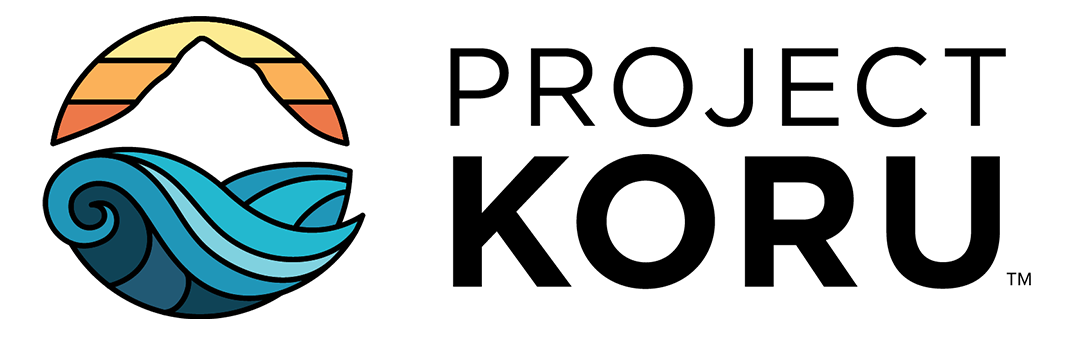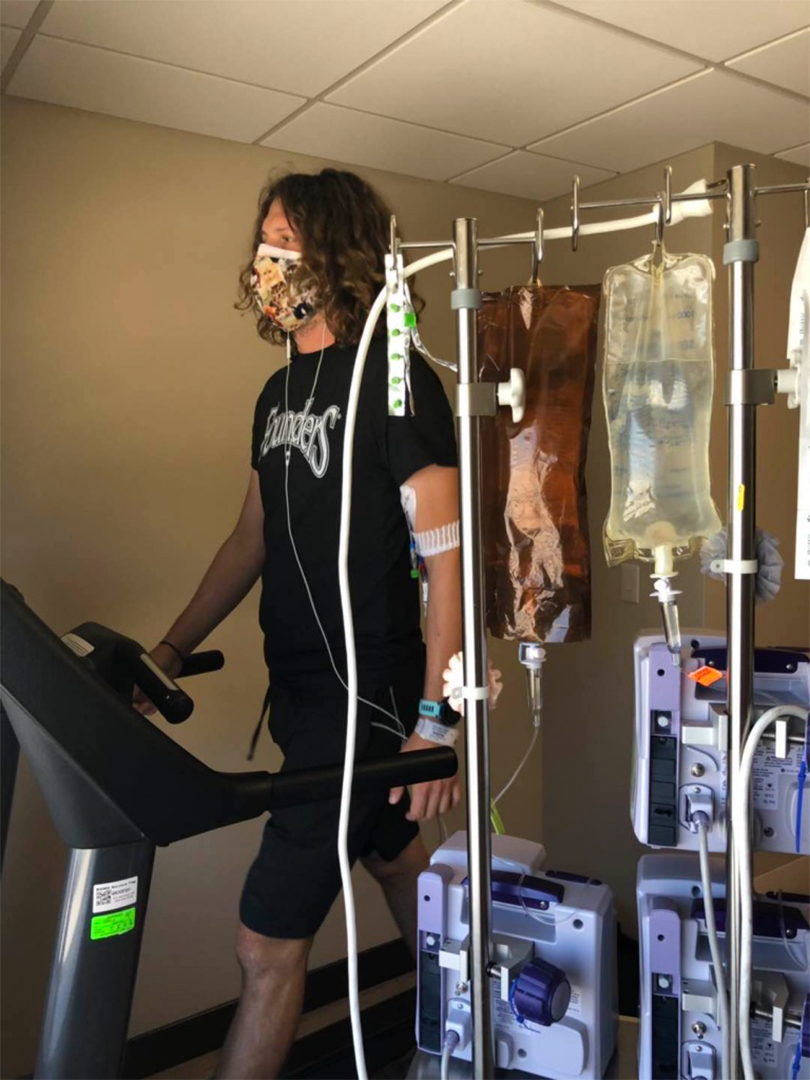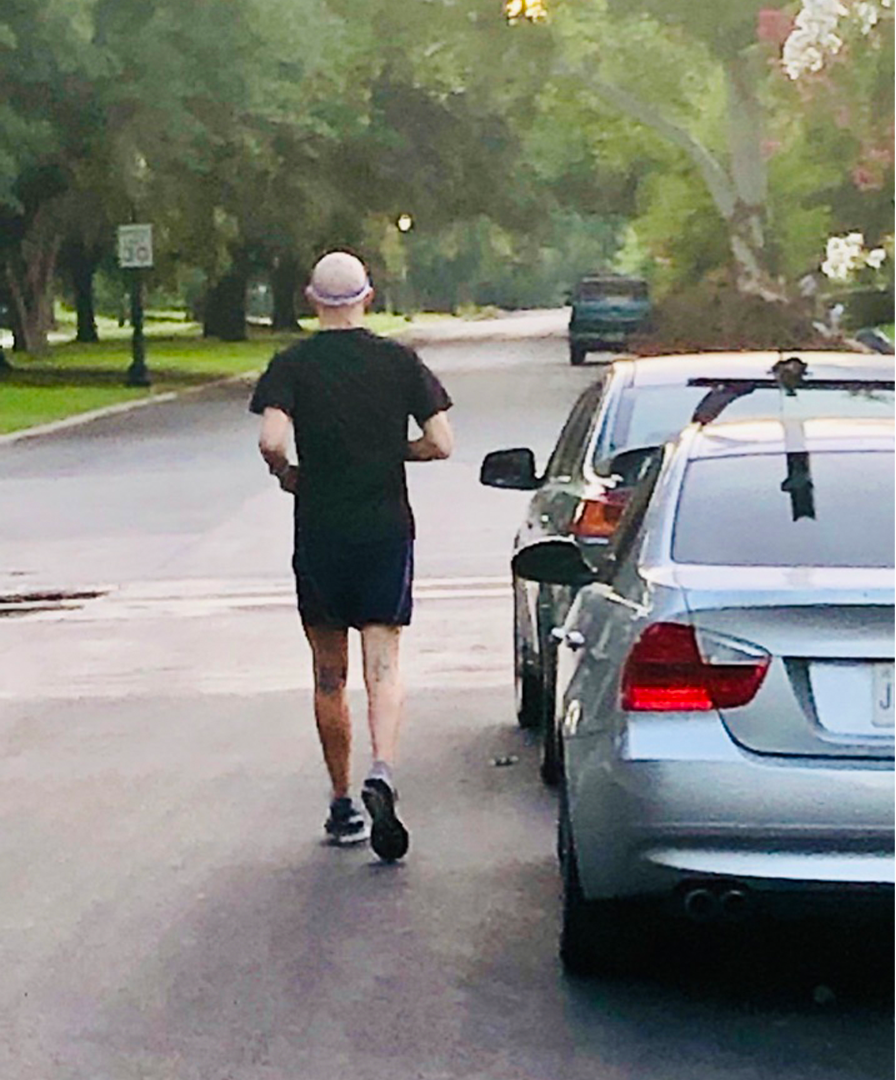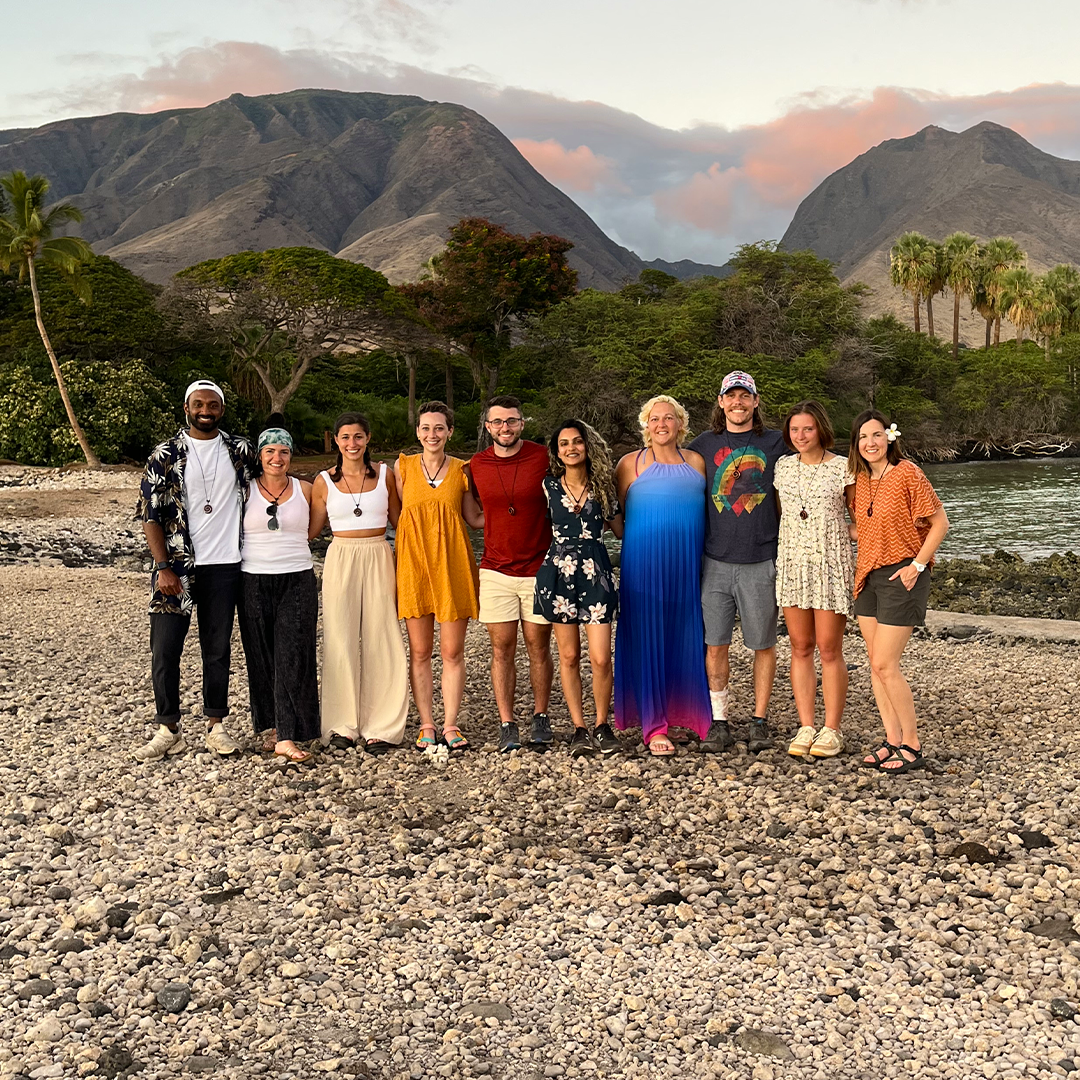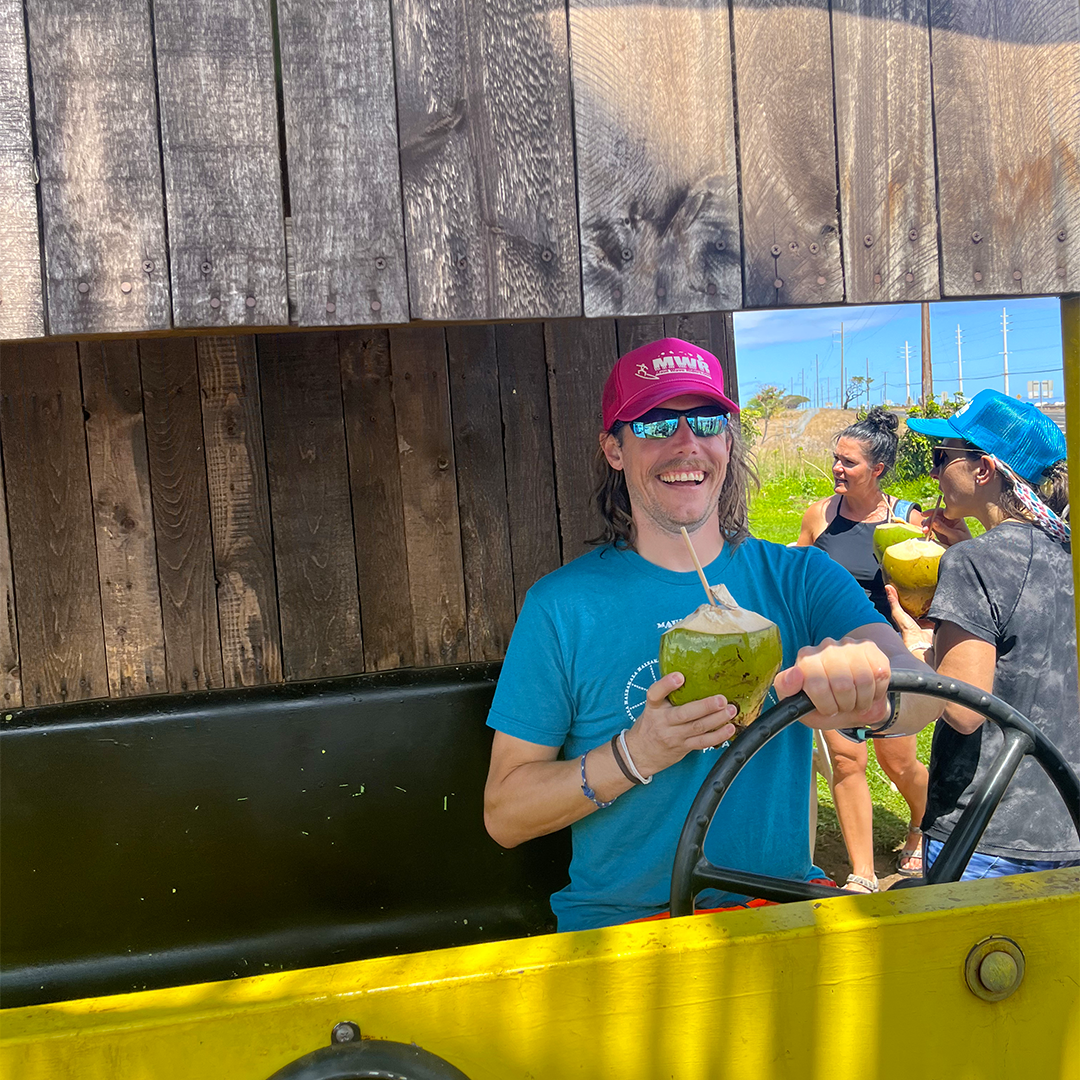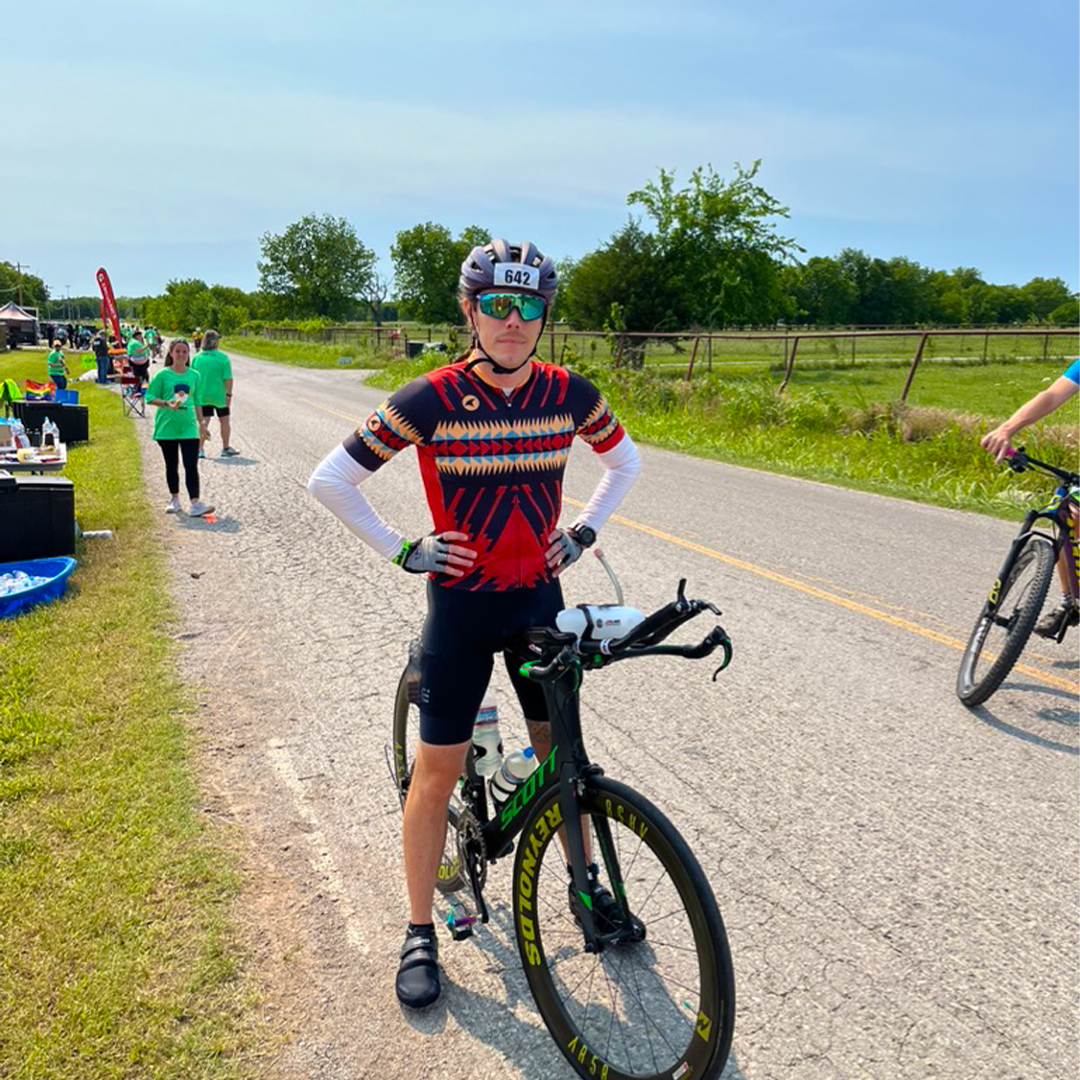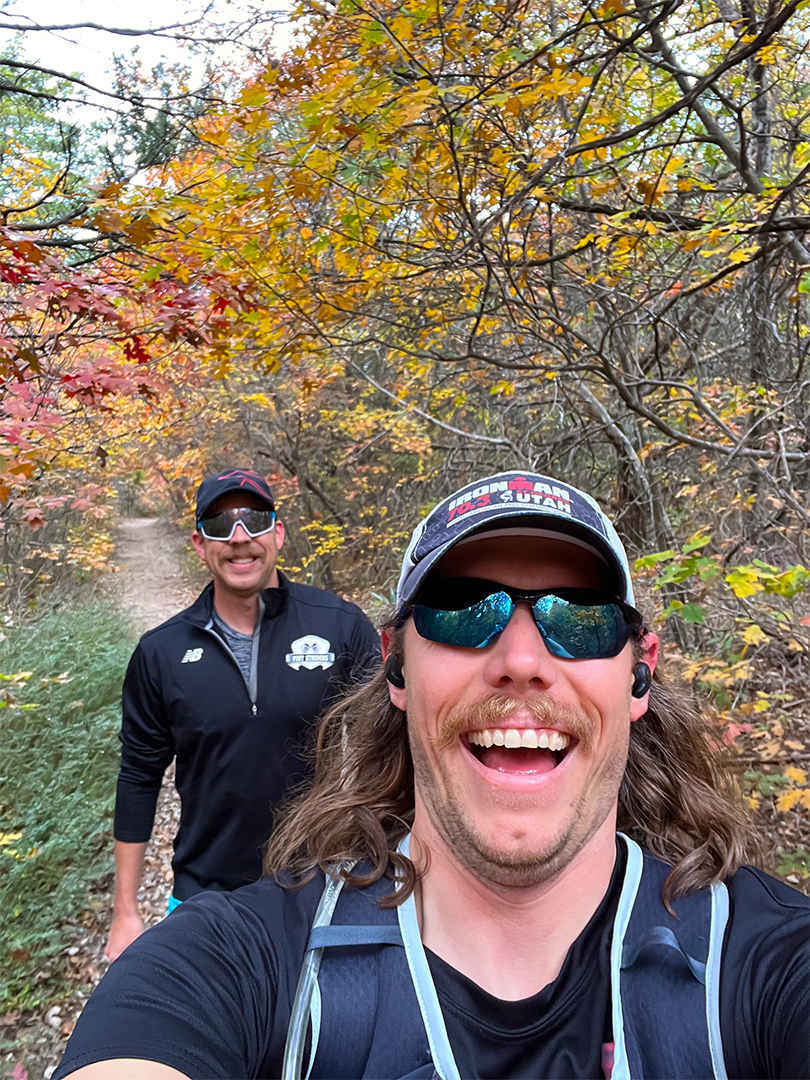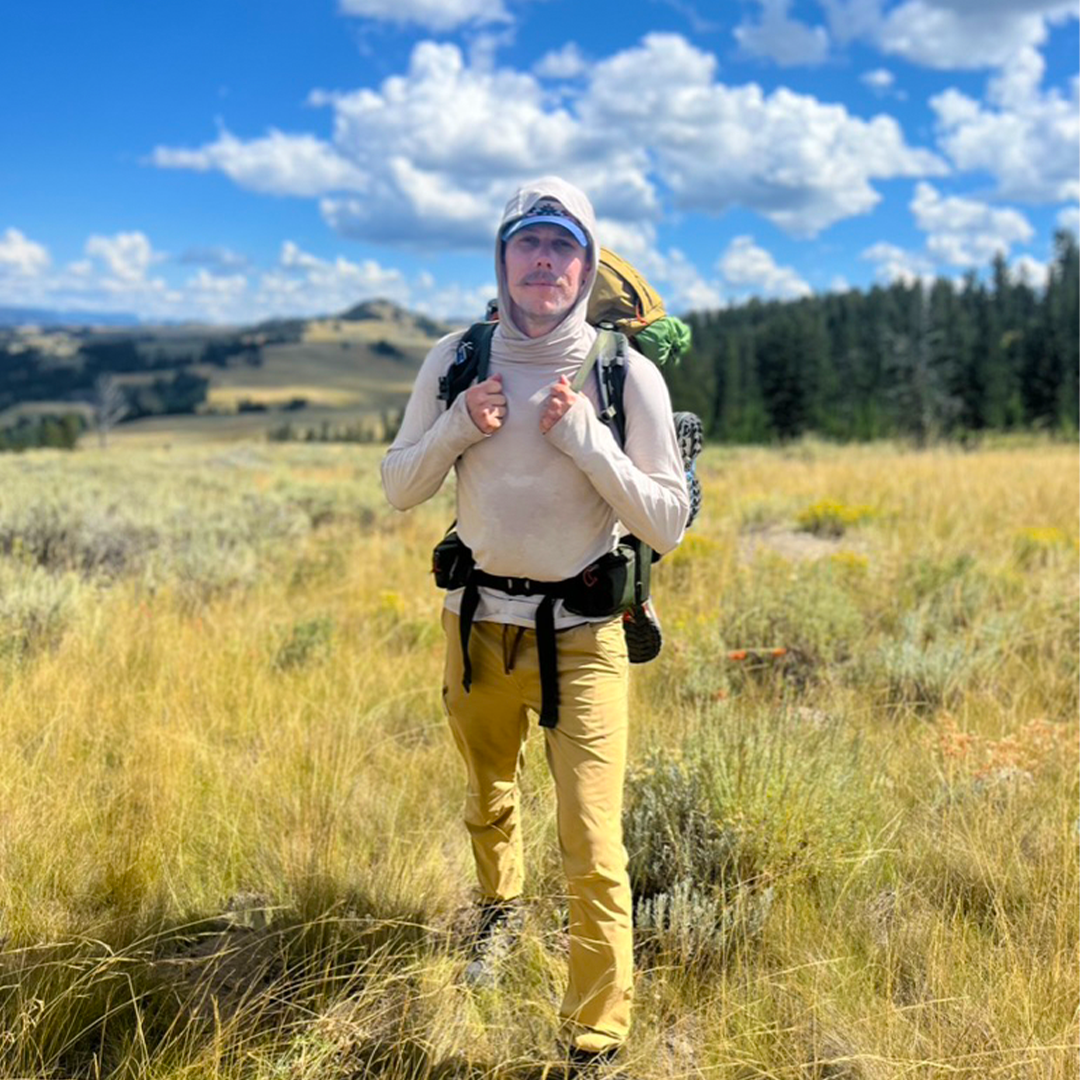Everest’s Journey
Everest is a Project Koru alum, a young adult cancer survivor, and an Ironman athlete participating in 3 major endurance events this summer to raise money for Project Koru. Below you will find his full story - from the moment he fell in love with endurance racing to his cancer diagnosis, returning to endurance racing, finding community, & more.
The Start
I fell in love with endurance racing as a kid. I was going through some health problems back then, not cancer, and I happened to stumble upon a televised screening of the Ironman World Championship in Kona. Watching all these athletes push their limits resonated with me. Something about watching people push themselves beyond perceived limitations inspired me. I fell in love with it. Stumbling upon that televised Ironman Championship is where the seed was planted.
Over the years, it was touch and go with what I could and couldn't do because I had multiple heart surgeries (I had tachycardia). But after the third heart surgery at the age of 17, I got clearance to start going out to live a "normal" life, whatever that meant. I started experimenting, partying, having fun, and seeing where life took me. Endurance sports weren't high on my list of priorities to take seriously until about five or six years ago when I gave up drinking and quit smoking. That's when I started taking it even more seriously because it dawned on me how much better I felt and how much better I could perform, and I started thinking about how I was only getting older. I knew the older I got, the harder it would be to try to accomplish that original dream of doing an Ironman. So I started working towards that.
That decision kicked off a period of me training way more seriously. After months of training, I did a half Ironman, and unbeknownst to me, I probably did it with leukemia. A little over a month later, I was diagnosed with cancer.
Diagnosis
I was diagnosed in June 2019, soon after completing my first half Ironman. I didn't show any symptoms of leukemia when I was diagnosed or leading up to it. I went to the hospital with chest pains. When you go to the ER for chest pains, they take it very seriously. You get rushed back to a room and almost immediately start receiving care. They started running a whole bunch of tests: EKGs, sonograms, blood tests, etc. And each test came back perfect. The doctor told me that they were waiting on the results of one more blood test and that it should be back in the next 10 minutes. After that, they were going to send me on my way.
Five minutes later, right outside my emergency room door that was cracked open, I heard them start talking about oncology and hematology. Now, I knew enough to know they would come in and start talking to me about something with cancer. So I tried to prepare myself for that. But I wasn't entirely sure what that second sciencey word meant; this would be answered relatively quickly when a hematologist came in and explained that this is some type of blood cancer. The plan went from me leaving the hospital in 5 minutes to immediately being admitted to inpatient and staying there for two months.
It was a wild ride, especially since my mom passed away from cancer six months earlier to the day. She died from melanoma. Going through that with my mom, and then six months later having to call my family and tell them what was going on, was tough.
Mentally I was dealing with a lot of uncertainty, fear, and anxiety. Lots of questions of why me, why again, this is bullshit. Why can't I ever catch a break? This is so unfair. I don't understand why. But ever since I was little, I've always had a very steadfast 'let's move forward' mentality. It might take a brief moment to kick in, but it will eventually kick in. I can't really blame it for taking a pause to a leukemia diagnosis. When something comes up, I take a second to dissect it, look it over, process it, and then its head down and move forward. So, let's keep moving forward. And that's precisely what happened with this. First, we had to figure out what it was. And then it's your treatment plan. Keep moving forward. Keep figuring it out. How does this fit in with my life? How can I still try to do what I want in life while being secluded in a hospital? That was a difficult change, but you figure your way through it.
Cancer & Empathy
My blood was at 86% cancer when I was diagnosed. My healthcare team was amazed that I was still up and trying to run around. I didn't have any typical symptoms of leukemia. In hindsight, I was starting to slow down in my workouts, runs, and cycling, but I thought I was overtraining.
The first round of chemo that I had had absolutely no effect on my cancer. That was not good. I went immediately from dealing with a hematologist to a stem cell transplant doctor. They told me this was my only option for survival. Stem cell transplant or die.
During this process, I asked one of my doctors for advice on what he would do if he were in my shoes. He told me, "I can't put myself in your shoes. I have no basis to try to even understand what it would be like to go through what you're going through and try to make an opinionated guess. However, I can try to have a conversation with you like you're my brother." I agreed, and he continued.
"Honestly, it's not looking good. The best use for you now is to go the Clinical Trial route. It might work. But if it doesn't work, we get to learn more about the disease, and that knowledge will hopefully make progress towards something that helps others down the road."
That conversation is another seed that was planted in me and really started to change me as a person. Looking back, before cancer, I was a very selfish individual. My life's goals, wants, and desires were all for me. The goal of completing an Ironman was for me and me alone. Work goals were for me. How do I impact the lives of those around me for my own gain, to make life easier and better for myself?
That driving factor of "me" became less when I quit drinking, but it paled in comparison to the effect of getting diagnosed with cancer; it completely shattered my illusion of self. I knew I'd been living my life wrong. How do I fix this? How do I live my life for others and start making more of an impact? I decided that if I was not going to survive this, at least I could do something for others. So I signed up for the clinical trial.
Wins & Losses
The clinical trial did work, though! I did three rounds, and that got me down to remission. Once I got there, it was time to start the stem cell transplant process. The transplant process is all very fluid – they tell you a date about a month before, and then they begin processing things, and then it might turn into six weeks later, or it might only be two.
When you get your stem cell transplant, it's called your rebirthday because you're starting over with a new immune system like that of a newborn. Fun coincidence? It was also my mom's birthday. I always joke around that my mom was trying to possess me. It's my turn now, Mom! Get out of here! All jokes aside that felt really special to me.
Recovery from a stem cell transplant is not easy. Getting back to endurance athlete shape was a long, hard road, and there wasn't much support to go around for exactly how to do that. I went from being able to go 100 miles by myself on a bike to needing a break after walking up one flight of stairs. It sucked. When I got released and discharged after my stem cell transplant, I knew I had a very long way to go.
So I demanded a prescription for a physical therapist, and they had one in the hospital that was an expert and trained explicitly for cancer patient recovery. But it's not a common practice to send stem cell transplant recipients to him.
I started working with him, and he was super ecstatic about it because he never gets athletes through his practice. And as we're working together, he's formulating his own plan to take my story and use it to convince the rest of the cancer building that this is what is needed, and this is why. My story led to a significant change in my hospital's standard procedure for stem cell transplants. As part of their recovery, all stem cell recipients work with a physical therapist after the transplant process. That's not what I set out to do, but it was pretty exciting.
After a certain point in recovery, I was considered healthy and ready to return to the world, which is a very intimidating milestone to reach.
Most young adults with cancer can relate to this next bit. What I said about not having much support to go around is pretty typical for young adult survivors; that's what post-treatment is like for many of us. "You're good. You're young! Get out there, champ. Go for it. You can do anything you like."
Living & Its Consequences
Even with the physical therapy, life post-treatment was long, grueling, and hard, physically and emotionally. Throughout the entire process, I felt lost.
I was constantly pushing myself physically, trying to figure out how to do things again, and building up muscles. I had to go from a stem cell transplant to doing an Ironman because I was determined to knock that off my bucket list of life. There was no question about it. I would get to this life goal.
But beyond that, I was lost. The doctors told me I was a rarity when initially diagnosed with acute myeloid leukemia. People that get leukemia are usually 12 years and younger or 65 and older. I couldn't connect with either group because of the age gap. All my local support groups were geared toward specific cancers that I didn't fall into or were for older people. I didn't know how or where to connect with people like me.
Young adults affected by cancer are so underrepresented that not enough attention is paid to them. They're just overlooked. There is a very unseen population of cancer. It's not my story, but things like this happen; at 26, you're getting tumors, and suddenly you need a liver transplant. And then to be told, "You're young and healthy and go on. Good luck. Go get 'em, champ!" That's just ridiculous.
It doesn't work. The person that goes through that can't connect with their age group or the people around them anymore. Friends don't get it. If you've never gone through chemo, how do you know what it's like? I can't paint that picture. I can try. But a person that's never gone through it will never know exactly what that poisoning feels like.
One day I was talking with my cycling team that does MS charity rides, and it struck me. What if there's something like that for cancer? What if there are events or activities geared toward me? I googled "cancer camps," and kids camps started popping up. So I changed it to "young adult cancer camps." And sure as shit, in the first results pop up: Project Koru, True North Treks, Send It. I was like, Oh my God, there are resources. It was like storm clouds were parting, and there were bright open skies, and I had no idea exactly what this was about to mean. All of these camps resonated with my physically demanding and pushing myself attitude. What lay in wait for me was something far better.
Finding Community
I went into camp not knowing a thing. I had no expectations other than to push myself physically and see what I could and couldn't do. I had a hunch that I would be going into camp as one of the more physically fit people there. So in my head, my goal was to push myself physically and still have fun. And then I got there, and the emotional connection blindsided me. I had no idea.
It was immediate upon the first two hours of camp. Everybody had finally come in, and we were all sitting around the table outside, having an awkward moment of getting to know each other. At that moment, I realized there was a deep giant hole within me, and suddenly there was something in it. This is what I'd been missing; connection and community with other people around my age with similar experiences.
That lit a fire in my mind. This is what I want more of in my life. It was an immediate fix. This is what I want to align my life with. There's got to be more. There's got to be a way for me to motivate, inspire, and do good for these types of camps.
On that trip, I started learning something I like: motivating and being somebody else's cheerleader, and helping people push through hard times. That stayed with me. It solidified even more that I want to give back to the community. I want to show people it is possible to do things they've never thought or dreamed of before. If you can dream it, you can do it. Go do it. It will be challenging, but I promise you will regret your decision not to do it, and that regret is going to be way harder.
Chasing Dreams
It was almost three years of constant work, from finishing treatment to completing an Ironman last year in 2022. Coming back, everything was different. The races were the same – every race is different, but at the same time, they're always the same. It was me that changed. Physically, I'm not near as fast as I used to be. Things are still more complicated than they were. I don't recover as quickly as I did. But I'm okay with that. I accept where I am. I get frustrated that I want to go faster. But that's just not where my body's at. I can still do it, and that's better than a lot of other possibilities that could have happened.
But the changes in me were more profound than just the physical. I don't put as much pressure on myself to perform at a higher level as I used to. Now, I'm more accepting of what the entire event is. I'm more social during races because I'm not going for the podium now. You're doing this physically shitty thing with like-minded people, so why not be friendly.
And overall, camaraderie has taken more of a front seat for endurance events than pushing competition has. The drive to push me further is still there; that never went away. And the drive to have fun while doing it is still there too, but the definition of fun has changed. Physically, it is a lot harder to do, and sometimes it sucks, but I have a lot more fun doing it now. Before, I didn't have that. Before cancer, training was training, and racing was racing. But now that I look for more enjoyment in life, that includes finding the fun in the grueling training I do.
"Watch Me"
I have been told, "no, don't do that," pretty much my entire life. I had stomach problems when I was 12, which required surgery, and then I had heart problems up until the age of 17. I went through three surgeries with that. During those developmental years when you're starting to get into sports, it was constantly no. No, you can't do it. Or I knew I couldn't do it because if I did, my heart rate would shoot up to 200 beats per minute and stay there, which wasn't good.
Being told no in such a developmental time is overloading to an adolescent. It sucked. But that formulated how I am now. Because I couldn't push myself physically during those times, I figured out how to do it mentally. I developed a very witty silver tongue and pushed the boundaries.
And that mentality has come into the rest of my life. If I'm told I can't do something, I'm going to figure out a way to a yes, I can do it. And that's really why endurance sports mean so much to me: there's always a limit of no. Always. Whether it's my body telling me no, my own mental state telling me no, or society questioning me, "Do you really want to run 50 miles?" Watch me. You're going to see what happens. Or my medical team. Same thing. They didn't necessarily tell me no, but they said it wasn't the best idea. If I was going to do it anyway, I had to be very careful about it. To that, I said, "I'm just gonna go do, and I'll let you know how it goes."
My primary doctor, the stem cell transplant doctor, told me I'm his "once-in-a-lifetime patient." He also says I terrify him, though. Because I go out and do everything I'm not supposed to do as a stem cell transplant patient, they don't really know how my body will respond to this many endurance events like an Ironman. I could set off my graft versus host disease by pushing myself too hard.
But, well, life isn't worth living if I can't push myself. If I reach a point where I break myself, we'll have to deal with that when we get there. I wasn't given another chance at life as a leukemia survivor to squander it by being safe. I'm going to go out there to experience life and push the boundaries of what is possible by just doing it.
What I've Learned
I've learned a lot of good lessons along the way. Racing taught me to always push on. You can always push yourself further than you've ever imagined. You have to be willing to make the difficult choice to do it or live with the difficult choice of regret.
I learned two big lessons from cancer. Empathy is the biggest one. Living for your fellow man, living for society. Living for the most basic human rights, needs, and connections is the best thing I could do with my life. Hands down.
One of the other things it taught me was how to live in the moment and be present, which is easier said than done. It was a lot easier going through cancer and chemo and not having the everyday distractions of work and life or anything stress-wise that can be thrown at you.
It was easier at that time to live in the moment. Now I've got to work for it. But being 100% in it, where you are right now, and being able to appreciate that happening is one of the biggest gifts I've ever received.
Lastly, leukemia sucks. I don't recommend choosing that one if ever given a choice.
242 Miles
This summer, I'll be competing in 3 endurance races to raise money to send more survivors to Camp Koru.
The first is Unbound in June. It is one of the most well-known gravel bike races in the world. I chose it for fun. I want to push myself over 100 miles on non-paved roadways. It's something I can push myself relatively hard at, still have fun, and still be far enough where people might pause to appreciate the effort behind it.
Steamboat is the second race in August. Just like Unbound, this is a 100-mile gravel bike race, but this one is at elevation in Steamboat, Colorado.
And then lastly, in what's looking like November, a group of us will run the Rim to Rim to Rim. This is an unofficial, unsupported, unsanctioned event that's 42 miles on foot from one rim of the Grand Canyon, to the other, and back with a total elevation gain of 11,000ft. This one has the same allure to me that the Ironman races did when I was a kid. That this doesn't seem physically possible, but people do it, so it has to be. It will be a new limit and threshold to push myself past, beyond anything I've ever done. I will be able to walk away from it with the completion being like a badge of honor to say I've done this.
If you're willing to push yourself to do something and you dedicate yourself to the choice, you will surprise yourself with what you can do. That's big for me, showing what I can overcome, even when everything's been played against me. And if I can push myself to accomplish "grand" things, then you can too.
Support Everests journey as he travels 242 miles to raise money for young adults with cancer by donating here.
